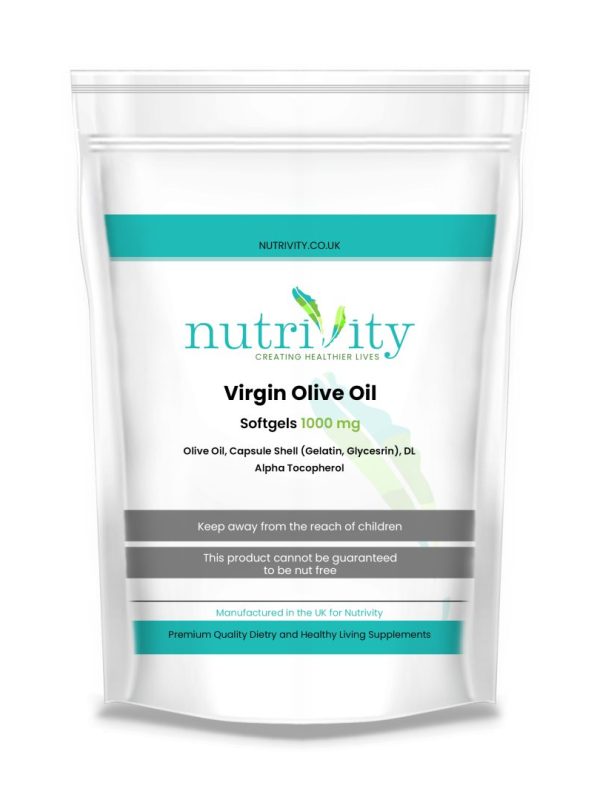What are the benefits of taking extra virgin olive oil orally?
Unlocking the Health Marvels: The Surprising Benefits of Consuming Extra Virgin Olive Oil
Extra virgin olive oil has long been known for its delicious flavour and its culinary uses in cooking and dressing. But in recent years, many health benefits of taking extra virgin olive oil orally have also been discovered, making it one of the most popular health foods on the market today. In this article, we will explore some of the benefits of taking extra virgin olive oil orally and how it can improve your overall health.
Rich in Antioxidants:
Extra virgin olive oil is rich in antioxidants, which help to protect cells against damage from free radicals. Free radicals are unstable molecules that can cause damage to cells and contribute to a range of health problems, including cancer, heart disease, and Alzheimer’s disease. The antioxidants in olive oil can help to neutralize these free radicals, reducing the risk of these diseases.
Anti-inflammatory properties:
Extra virgin olive oil contains anti-inflammatory properties which can help to reduce inflammation in the body. Chronic inflammation has been linked to a range of health problems, including heart disease, cancer, and arthritis. By reducing inflammation in the body, extra virgin olive oil can help to reduce the risk of these diseases and improve overall health.
Improved heart health:
One of the most well-known benefits of taking extra virgin olive oil orally is its ability to improve heart health. Extra virgin olive oil contains monounsaturated fats, which can help to lower bad cholesterol levels in the blood. It can also help to reduce the risk of heart disease by improving blood vessel function and reducing inflammation in the body. In fact, studies have shown that people who consume extra virgin olive oil regularly have a lower risk of heart disease.
Virgin Olive Oil – Benefits of taking extra virgin olive oil orally
Lower risk of stroke:
Extra virgin olive oil has also been linked to a lower risk of stroke. A study conducted by the University of Bordeaux in France found that people who consume extra virgin olive oil regularly had a 41% lower risk of stroke compared to those who did not consume olive oil.
Weight management:
Extra virgin olive oil can also help with weight management. The monounsaturated fats in olive oil can help to reduce appetite and make people feel full. Which can lead to a reduction in calorie intake. In addition, extra virgin olive oil can help to increase the body’s metabolic rate. Which can lead to increased calorie burning and weight loss.
Improved brain function:
Another benefit of taking extra virgin olive oil orally is improved brain function. Extra virgin olive oil contains polyphenols, which can help to protect the brain against damage from free radicals. It can also help to improve memory and cognitive function.
Elevate Your Well-being with Extra Virgin Olive Oil
In the quest for optimal health, consider incorporating extra virgin olive oil into your daily routine. Renowned for its rich flavor and numerous health benefits, this liquid gold goes beyond culinary delight, offering a myriad of advantages when taken orally.
Antioxidant Powerhouse for Cellular Health
Extra virgin olive oil is a treasure trove of antioxidants, such as polyphenols and vitamin E. These antioxidants combat oxidative stress, protecting your cells from damage and promoting overall well-being. Regular consumption can contribute to a resilient immune system and reduce the risk of chronic diseases.
Heart Health and Cholesterol Management
Nurture your heart by embracing extra virgin olive oil. Its high content of monounsaturated fats has been linked to cardiovascular benefits, including lowering LDL (bad) cholesterol levels. Prioritize heart health with this simple dietary addition.
Cognitive Boost and Brain Health
Experience a cognitive boost with the omega-3 fatty acids found in extra virgin olive oil. These essential fats support brain function and may play a role in preventing cognitive decline. Incorporate this natural elixir into your diet for a potential cognitive edge.
Anti-Inflammatory Properties for Joint Health
Combat inflammation naturally with the anti-inflammatory properties of extra virgin olive oil. Regular consumption may assist in reducing joint pain and stiffness, making it an excellent addition for those seeking joint health support.
Weight Management and Satiety
Discover a delicious way to support your weight management journey. Extra virgin olive oil’s monounsaturated fats promote feelings of satiety, aiding in portion control and weight maintenance.
Conclusion:
Extra virgin olive oil is a versatile and healthy food that can be easily incorporated into your diet. By taking extra virgin olive oil orally, you can benefit from its antioxidant properties, anti-inflammatory properties, improved heart health, lower risk of stroke, weight management, and improved brain function. So, next time you’re in the kitchen, reach for the extra virgin olive oil and start reaping the health benefits!
The benefits of incorporating extra virgin olive oil into your daily diet are vast and diverse. Elevate your well-being, nurture your heart, boost cognition, and manage inflammation with this simple yet powerful addition to your culinary repertoire.
- Benefits of extra virgin olive oil
- Antioxidant-rich olive oil
- Heart health with olive oil
- Omega-3 fatty acids for brain health
- Olive oil and joint inflammation
- Weight management with olive oil
- Extra virgin olive oil for the immune system
- Monounsaturated fats in olive oil
- LDL cholesterol and olive oil
- Cognitive benefits of olive oil
All supplements are available on our website. Always seek medical advice from your General Practitioner before taking any supplements and in case of any ongoing medical issues. Nutrivity is not responsible for any medical issues as a direct or indirect result of taking any of our supplements.
[Sassy_Social_Share]
References:
EFSA Panel on Dietetic Products, Nutrition and Allergies (NDA); Scientific Opinion on the substantiation of health claims related to polyphenols in olive and protection of LDL particles from oxidative damage (ID 1333, 1638, 1639, 1696, 2865), maintenance of normal blood HDL-cholesterol concentrations (ID 1639), maintenance of normal blood pressure (ID 3781), “anti-inflammatory properties” (ID 1882), “contributes to the upper respiratory tract health” (ID 3468), “can help to maintain a normal function of gastrointestinal tract” (3779), and “contributes to body defences against external agents” (ID 3467) pursuant to Article 13(1) of Regulation (EC) No 1924/2006. EFSA Journal.





